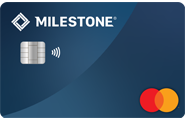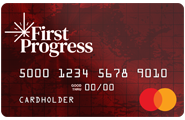Table of Content
A credit reporting agency or credit bureau is one of the companies that keep track of your credit information. What they do with it, however, is sell it and pass it on to create a credit report.
They do a lot of work to compile all of that money and from there they provide a credit lender with information about whether you deserve the credit. That means they make the process a whole lot easier and faster for your potential lenders.
Key Takeaways
- In the United States, there are three major credit bureaus: Equifax, Experian, and TransUnion. They prepare credit reports by gathering and analyzing several types of information about the consumer.
- Not only banks and credit card companies can have access to credit reports, but also insurance companies, landlords, and even employers.
- Your actual credit score is based on a formula based on the credit report. This includes the payment history, overall credit utilization, and other indicators.
- Besides those three agencies which dominate the US market, several other bureaus can provide credit reports. In most cases, they use records of bill payments, to determine the creditworthiness of an individual.
What Are The Three Credit Bureaus?
You’ll find three main bureaus in the United States: Equifax, Experian & TransUnion. Each of these collects that information and creates a credit report.
The credit bureaus gather all of the information about your credit. They collect all your information, organize it, and pass it out to anyone who needs it. Anyone looking at giving you credit will look at your credit report. Whether it’s a bank, credit card company, or even a potential employer, they want to know you can be trusted.
Your credit report tells them how reliable you are regarding a loan, a job, or rental property. Remember that not every credit bureau reports information the same way, and it’s up to you to ensure that everything reported about you is accurate. A credit bureau doesn’t decide anything related to your credit, like your limits, interest, or qualifications.
Which Information Does The Credit Bureaus Collect?
These bureaus start collecting information as soon as you open your first credit account.
They’ll collect everything from your repayment history and the credit you have to the credit you’re using to the debt you currently have. They also keep track of public records, including repossessions, bankruptcy, tax liens, and foreclosures.
There’s also information on your credit report that isn’t related to your credit. These are your address, current and previous, your employers, current and previous, and your date of birth. These things are generally used to confirm that you are on the report or that information is being reported correctly. They are not allowed to be used in your credit report, however.

Where Does the Information Come From?
Banks and different types of businesses will report the information to the credit bureau. They can get information from anyone that you do business with. Those lenders and people that you do business with can report regularly. They talk about whether you’re paying on time and if you’ve ever been late or defaulted. They also talk about how much debt you owe.
On top of this, they can pull public records. Things like your tax liens, bankruptcy, and more can all be pulled directly from the court, either state or local. All of this can be added to your credit report.
When those credit reporting agencies collect your information, they can sell it to other businesses. They have to only sell to those who have the right to see it. If you apply for credit, you give them the right to look at your report.
If someone wants to prescreen you to provide services, they also get to purchase your report. Remember that you usually have to provide permission for an employer or landlord to look at your report. If you’re looking for credit monitoring, you will generally have to pay for it. Credit reporting agencies do pay for it, however.
Sign Up for
Our Newsletter
and special member-only perks.
Sign Up for
Our Newsletter
and special member-only perks.
Who Use Your Credit Report Data And Why?
A bank or a credit card company can get your data from a credit bureau, but they’re not the only ones.
Employers, insurance companies, debt collectors, and landlords could request your information. They want to know about your credit history and whether you’re doing everything you should be regarding your credit.
Prescreening lists can be offered to banks and insurance companies so they can determine who would be a good fit for their product. They may request lists of people with high balances and offer balance transfer cards, for example. If you’ve ever wondered, that’s how you get preapproved offers, unsolicited offers for refinancing new cards, or anything else.
When Do Credit Bureaus Update?
The frequency at which credit bureaus update their information can vary. However, in general, credit bureaus receive updates from creditors and lenders on a monthly basis. These updates can include changes to account balances, payment history, and credit limits, among other things.
However, the credit bureaus themselves may not update the credit reports on a regular schedule. Some may update reports weekly or monthly, while others may not update them as frequently.
In addition, it's important to note that the credit bureaus do not always receive the same information at the same time, so the information on your credit report from one bureau may not match the information on your credit report from another bureau.
It's also important to note that certain actions such as opening a new credit account, applying for a loan, or going through a credit dispute may prompt a credit bureau to update your credit report more frequently.
How Do I Freeze My Credit On All Three Bureaus?
In order to freeze your credit on all three credit reporting agencies (Equifax, Experian, and TransUnion), you will need to contact each bureau individually and request a credit freeze.
Please note that each bureau has its own fee policy for freezing, unfreezing or thawing of credit reports, you should check the fee details before doing any action.
Here are the steps to follow for each bureau:
-
Equifax
- Visit the Equifax website and click on the “Security Freeze” link
- Create an account or log in if you already have one
- Click on the “Place a freeze” link
- Follow the instructions to complete the process
-
Experian
- Visit the Experian website and click on the “Freeze Your Credit” link
- Create an account or log in if you already have one
- Click on the “Freeze your Experian Credit Report” link
- Follow the instructions to complete the process
-
TransUnion
- Visit the TransUnion website and click on the “Freeze Your Credit” link
- Create an account or log in if you already have one
- Click on the “Freeze your TransUnion Credit Report” link
- Follow the instructions to complete the process
Credit Report vs. Credit Score: How They Compare?
If you’ve heard about your credit score and credit report, it’s important to balance the two. Your credit score is created based on formulas based on your credit report. They’re not on your credit report, though, because that’s something separate. The Fair Isaac and Company creates a credit score used primarily by creditors. There are additional scoring methods, though, so you may want to pay attention.
Your score is about what your credit report says, and it comes out as a three-digit number. That number can range anywhere from 300 to 850, where you want to get the highest number possible.
What If I Don't Have A Credit Report?
Alternatives to traditional agencies are designed for those who don’t have a lot of credit or those with no credit. As many as 45 million American adults have no or very little information on file.
That means these individuals, primarily lower-income, did not have a credit score. This made it nearly impossible for them to qualify for the things they might need, like credit and loans.
Alternative reporting agencies still make it possible to determine the creditworthiness of individuals like these.
You’ll see PRBC most frequently, which lets people report their information. These are rent, utilities, phone, and insurance payments. That way, they can build up a positive file for other creditors. It can be undesirable for many people, but it’s important for those who need these alternative bureaus.
Anyone concerned about reporting to an alternative bureau should check the Consumer Financial Protection Bureau to find out more about these agencies.
What Are The Common Alternatives?
These alternatives are here just to make sure that there is some competition when it comes to the main bureaus. They’re all separate and private companies after all. That means they are going to work around each other.
With these bureaus you’re going to be given a creditworthiness rating based on different information. It’s all based on something other than credit reports and you’ll find options like:
-
Certegy
Certegy is a check authorization service that helps merchants and businesses determine the risk of accepting a check as payment.
It works by collecting and analyzing data on check-writing and check-cashing history, as well as other information, to generate a risk score for each check presented for payment.
The score is based on a variety of factors, including the customer's check-writing history, the customer's banking information, and other data.
-
ChexSystems
ChexSystems is a consumer reporting agency that specializes in collecting and reporting information on consumer checking account and check-writing behavior.
It works by collecting information from banks and financial institutions on consumer checking account activity, including account openings and closures, bounced checks, and other negative information.
This information is then used to create a consumer report, which is provided to other financial institutions to help them make decisions about opening new accounts or approving loan applications.
When a consumer applies for a new checking account at a financial institution, the institution will typically check the consumer's ChexSystems report.
-
Clarity Services
Clarity Services is a consumer reporting agency that specializes in collecting and reporting information on consumer financial behavior, particularly for subprime and “thin-file” consumers, who have limited or no credit history.
It collects information from various sources, including payday lenders, check cashers, rent-to-own stores, and other financial service providers, to create a consumer report.
When a consumer applies for a loan or credit, the lender will typically check the consumer's Clarity Services report. Suppose the report shows negative information, such as a history of late payments or unpaid debts. In that case, the lender may decide not to approve the loan or extend credit, or may approve the loan but with certain restrictions or conditions.
Consumers can request a copy of their Clarity Services report and dispute any inaccurate information. They can also take steps to improve their Clarity Services report, such as by paying off any outstanding debts, making timely payments on current loans, and taking other steps to improve their overall financial health.
-
Innovis
Innovis is a consumer reporting agency that specializes in collecting and reporting information on consumer credit history and behavior. It collects information from various sources, including credit card companies, banks, and other financial institutions, to create a consumer credit report.
When a consumer applies for a loan or credit, the lender will typically check the consumer's Innovis report. Suppose the report shows negative information, such as a history of late payments or unpaid debts.
Consumers can request a copy of their Innovis report and dispute any inaccurate information.
FAQs
How to report identity theft to credit bureaus?
If you suspect that you are a victim of identity theft, you should report it to the credit bureaus as soon as possible.
You can do it on each bureau's website by clicking on the “Report Identity Theft” link. Alternatively, you can call them directly.
It's also a good idea to file a report with the Federal Trade Commission (FTC) and your local police department. Additionally, you may also want to place a fraud alert or freeze on your credit reports to prevent any further fraudulent activity.
What cell phone companies report to credit bureaus?
Many cell phone companies report customer payment information to the credit bureaus, including both positive and negative payment history. Some of the major cell phone companies that report to credit bureaus include:
- AT&T
- Sprint
- T-Mobile
- Verizon
It's important to note that not all cell phone companies report to credit bureaus, and the ones that do may not report to all three major credit bureaus (Equifax, Experian, and TransUnion).
Additionally, the specific information that a cell phone company reports to the credit bureaus can vary, so it's a good idea to check with your specific provider to understand how they report.
Does Sezzle report to credit bureaus?
Sezzle is a payment platform that allows customers to split their purchases into smaller payments over time.
Sezzle does not directly report to credit bureaus, but if a customer uses Sezzle to make a purchase from a merchant who does report to credit bureaus, that merchant may report the customer's payment information to the credit bureaus.
Does Zip report to credit bureaus
Zip is a buy now, pay later platform that allows customers to make purchases and pay for them in installments. It's similar to another buy now, pay later providers like Afterpay, Klarna, and Sezzle.
It's not entirely clear if Zip reports to credit bureaus or not. Zip does not have any public statement or information about this topic on its website or publicly available sources. However, it's worth noting that some similar platforms do report to credit bureaus.
Do credit unions report to the credit bureaus?
Yes, credit unions report the credit information of their members to the credit bureaus on a regular basis, usually on a monthly basis. This means that if you have a credit union account and you make your payments on time, it will help improve your credit score. On the other hand, if you miss payments or default on your account, it can have a negative impact on your credit score.
It's important to note that not all credit unions report to all three major credit bureaus, and the specific information that a credit union reports to the credit bureaus can vary. It's a good idea to check with your specific credit union to understand how they report to credit bureaus.
Do insurance companies report to credit bureaus?
Insurance companies do not typically report to credit bureaus, as they are not considered traditional credit providers. Insurance companies usually focus on assessing risk, not creditworthiness.
Credit bureaus typically gather information from financial institutions such as banks, credit card companies, and lenders, as well as other sources such as utility companies and landlords.


